83 - A Bad Case of Subjunctivitis .....
Thursday, November 28, 2013
Well, the impossible has happened. Despite the class managing to delay the arrival of the subjunctive tense for many months, and working against almost impenetrable resistance from the group, last week Juan-Mi came up with a couple of really effective exercises that has drummed the subjunctive into this recalcitrant bunch of reprobates that meets weekly at the Axalingua school in Colmenar www.axalingua.es
It was also a master-class on how to teach adults. Don't frighten them, lead them in gently, show them that they understood it already, and then draw on the group's own knowledge to come up with their own rules to help them remember. As an ex-trainer myself (of charity workers), I recognised the techniques - but only afterwards when I was reflecting on the class. During the session, I was totally caught up in the process which not only completely by-passed our fears of the subjunctive tense, but also made it simpler and more memorable than we would ever have thought possible.
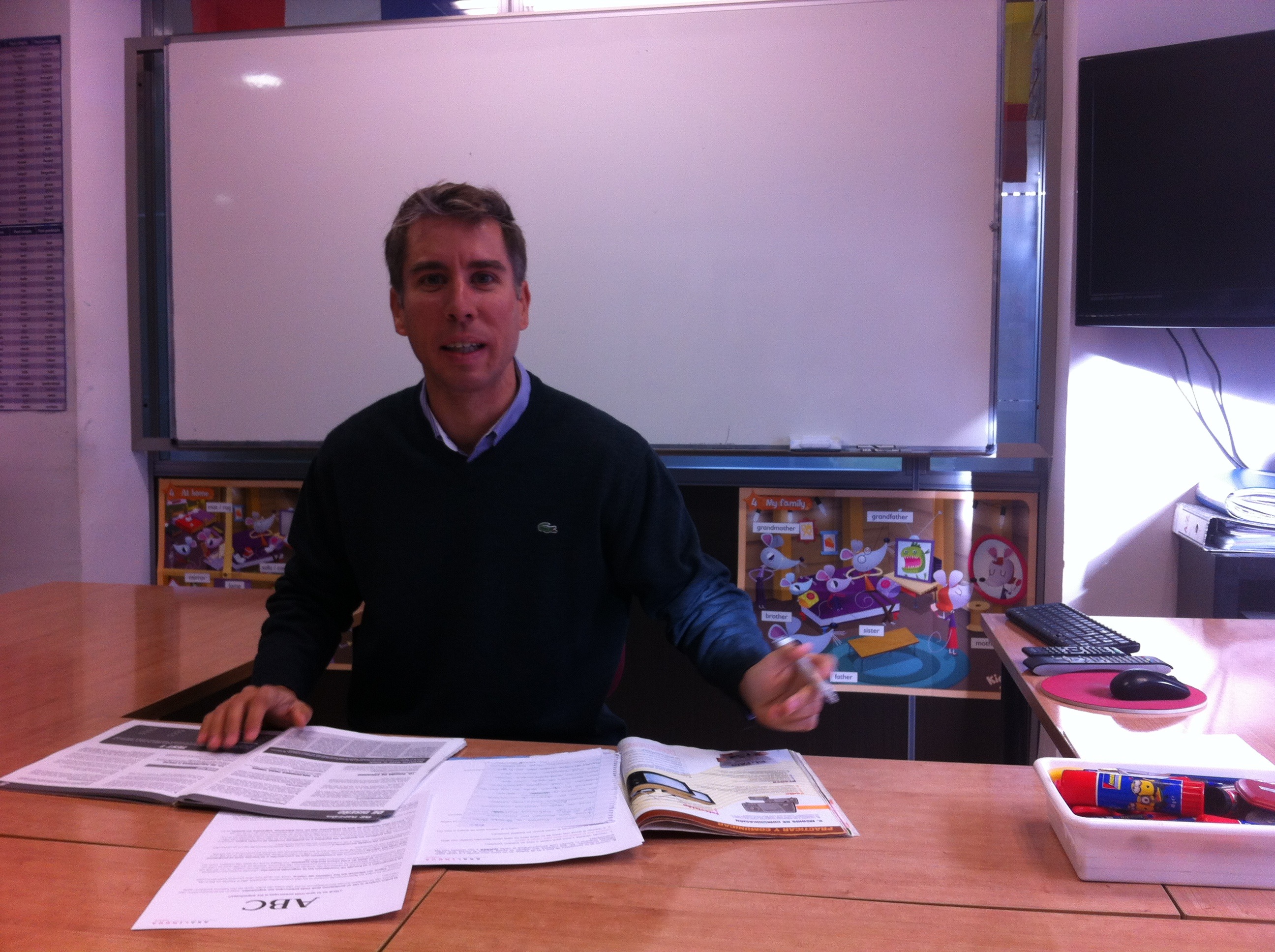 Trick number one was beginning the session with quite a deep discussion of some controversial issues. We were talking about demonstrations and strikes, the reasons for them, and whether we were in agreement with the aims of the demonstrators. By getting the more political or "thinking" part of our brains going, the "learning" part of our brains sat back and went off duty while we got fired up, discussed and argued, agreed and disagreed with each other, and forgot about the bad case of subjunctivitis that had been threatened for today's lesson. Trick number one was beginning the session with quite a deep discussion of some controversial issues. We were talking about demonstrations and strikes, the reasons for them, and whether we were in agreement with the aims of the demonstrators. By getting the more political or "thinking" part of our brains going, the "learning" part of our brains sat back and went off duty while we got fired up, discussed and argued, agreed and disagreed with each other, and forgot about the bad case of subjunctivitis that had been threatened for today's lesson.
Trick number two was giving us a very funny little scene to act out, with one simple question to answer at the end (as to whether the young woman said yes or no to going on a date). So we concentrated on the wonderful over-acting from our enthusiastic group, and we concentrated on looking out for the answer to the question about the date. Did we understand most of the script, Juan-Mi asked us, casually? Yes, we agreed, pretty much. Well without us even noticing, it had been jam-packed with examples of the subjunctive. And we had listened to it then read and understood it, without difficulties.
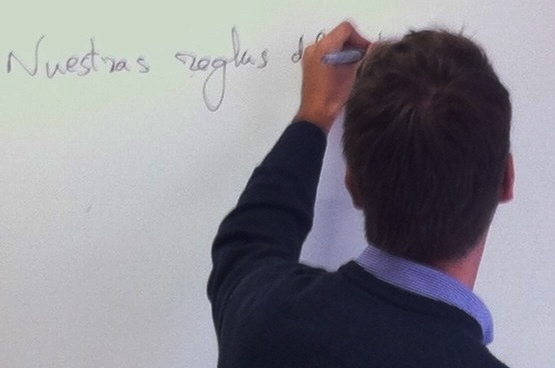 Trick three was to avoid lecturing us. Juan-Mi has a light and inclusive teaching style, ideal for adult learning. Looking at the acting exercise we had just completed, together we came up with some of the "rules" about the subjunctive - when to use it, what are the component parts, and how to construct it. With our five rules up on the whiteboard, it suddenly made complete sense. And more importantly, it appeared to be both manageable and useable. Se me encendió la bombilla. Trick three was to avoid lecturing us. Juan-Mi has a light and inclusive teaching style, ideal for adult learning. Looking at the acting exercise we had just completed, together we came up with some of the "rules" about the subjunctive - when to use it, what are the component parts, and how to construct it. With our five rules up on the whiteboard, it suddenly made complete sense. And more importantly, it appeared to be both manageable and useable. Se me encendió la bombilla.
So then it was off to Málaga for a rowdy night with friends at an intercambio in a bar. Every so often a subjunctive was produced with a flourish at which point four of us jumped up for a raucous high five and the cry of "¡¡¡ Subjuntivo !!!" In return our Spanish friends were rewarded with a high five and a congratulatory shout whenever they successfully used an English possessive contraction or the second conditional tense. At the weekend a quieter one-to-one intercambio was useful to start to bed in the new learning.
I have worked out that it takes about two months from learning something new, to being able to pull it from my memory confidently and with reasonable accuracy. A few months ago I was ranting about the ridiculousness of the "se me da mal" construction and moaning that it would NEVER become comfortable to use. Pues, ahora se me da bien usarlo con fluidez. About six weeks ago in class we struggled with what seemed a completely ludicrous construction about losing keys - learning to say "Se me han perdido las llaves" (The keys have lost themselves to me) rather than "He perdido las llaves" (I have lost the keys). It's supposed to reflect the "involuntary" nature of the loss of the keys (as though "I have lost the keys" is somehow deliberate???). A week ago I used the new version instinctively.
So under Juan-Mi's tutelage we are being given all that we need to deal with this worrying case of subjunctivitis, recover, and emerge in a few weeks confidently able to announce "Espero que hablemos bien el subjuntivo".
© Tamara Essex 2013
THIS WEEK’S LANGUAGE POINT:
So it comes when there is a second verb after a "parent" verb, such as "I hope that you want it" or "I suggest that we go now" or "I want that you eat that cheese" (we would say "I want you to eat that cheese").
Espero que lo QUIERAS. Sugiero que nos VAYAMOS. Quiero que COMAS ese queso.
And the construction is simply to "change track" so the A verbs (hablar etc) use the E (Espero que yo HABLE bastante bien). And the E and I verbs (comer, vivir etc) use the A (Yo dudo que ella VIVAS aqui. Espero que nos VEAMOS pronto).
Phew! Not so hard after all. Lots of other uses of it and constructions of it, but it's a good start.
 1
Like
Published at 4:51 PM Comments (2)
1
Like
Published at 4:51 PM Comments (2)
82 - Domingos
Thursday, November 21, 2013
Los domingos. Días de descanso. Sundays. Days of rest.
Sundays more than any other day mark the changing of the seasons. For the last few months Sundays have been marked by early-morning shouting in the street as impossibly-large families cram into too-small cars, ferrying dishes of pre-cooked food, bags of meat for barbecuing, and crates of beer into the groaning boot of the car. Heading off for “a day in the campo” to relax, chat and laugh with cousins and grandchildren and sisters-in-law and to make full use of the day of rest.
Then suddenly last week the weather changed dramatically. Summer, which had continued well into November, suddenly packed its bags and departed without warning. One day we were sitting at a beach café overly-warm in a light long-sleeved t-shirt, the next day I was pulling the electric blanket and the woolly jumpers from the under-bed storage box and closing the kitchen window firmly till next spring.
Los domingos. Días de descanso. Now Sundays in my little street mean that my neighbour’s son, Jose Antonio, works on the rally car in the garage opposite, tapping out last season’s dents and lovingly repainting the sponsors’ logos on the sides. The little girls two houses up the slope are quieter now, indoors much more, emerging to play in the street for just 20 minutes rather than late into the night. The other women and I chat only briefly in the mornings, complaining about the cold, and in thick slippers and dressing gowns. The morning trip to the bakery is now a sprint rather than the leisurely sun-drenched stroll.
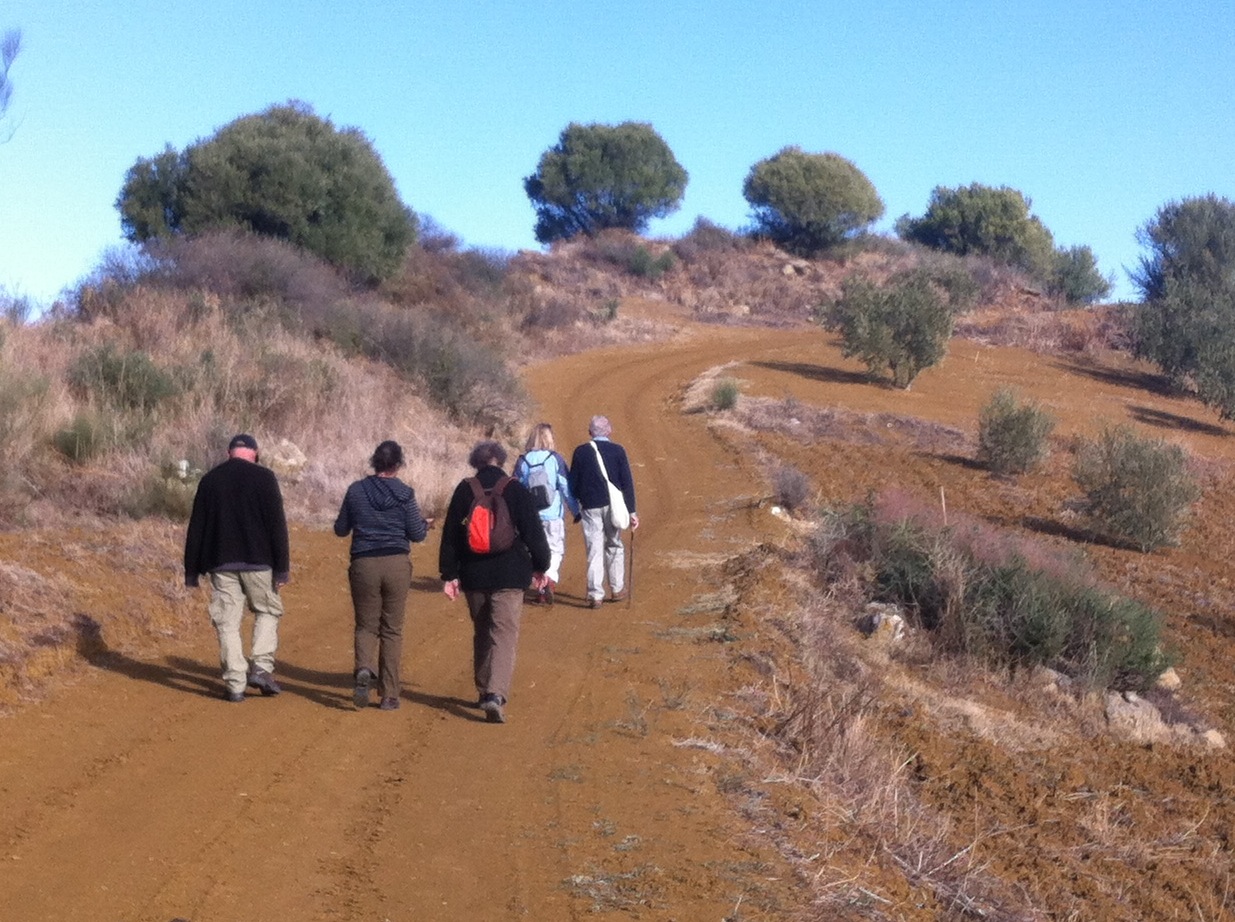 Los domingos. Días de descanso. The lightweight walking boots are pulled out from under the rubbish that accumulates in the glory-hole beside the front door, and the sandals are put away regretfully. Sandwiches made, and it’s a short drive to the meeting-point for the walking group. We are lucky and the sunshine warms us throughout the morning as we follow tracks on different soil this side of the mountains – it’s clay here, which later in the season after heavier rain would be impossible to walk on. Glimpses of the sea 30 kilometres distant, remnants of a roman road (but leading where?), a rest-stop on a rocky outcrop, then the circular route takes us back down and we end up at Bar Ortega for coffee. As we wind down, the tables around us fill up with large family groups, still spending Sunday lunch together sharing food and companionship but using these bars, quiet during the week, but bursting into life and efficiently producing enormous plates of food for 60 people every winter Sunday. Los domingos. Días de descanso. The lightweight walking boots are pulled out from under the rubbish that accumulates in the glory-hole beside the front door, and the sandals are put away regretfully. Sandwiches made, and it’s a short drive to the meeting-point for the walking group. We are lucky and the sunshine warms us throughout the morning as we follow tracks on different soil this side of the mountains – it’s clay here, which later in the season after heavier rain would be impossible to walk on. Glimpses of the sea 30 kilometres distant, remnants of a roman road (but leading where?), a rest-stop on a rocky outcrop, then the circular route takes us back down and we end up at Bar Ortega for coffee. As we wind down, the tables around us fill up with large family groups, still spending Sunday lunch together sharing food and companionship but using these bars, quiet during the week, but bursting into life and efficiently producing enormous plates of food for 60 people every winter Sunday. 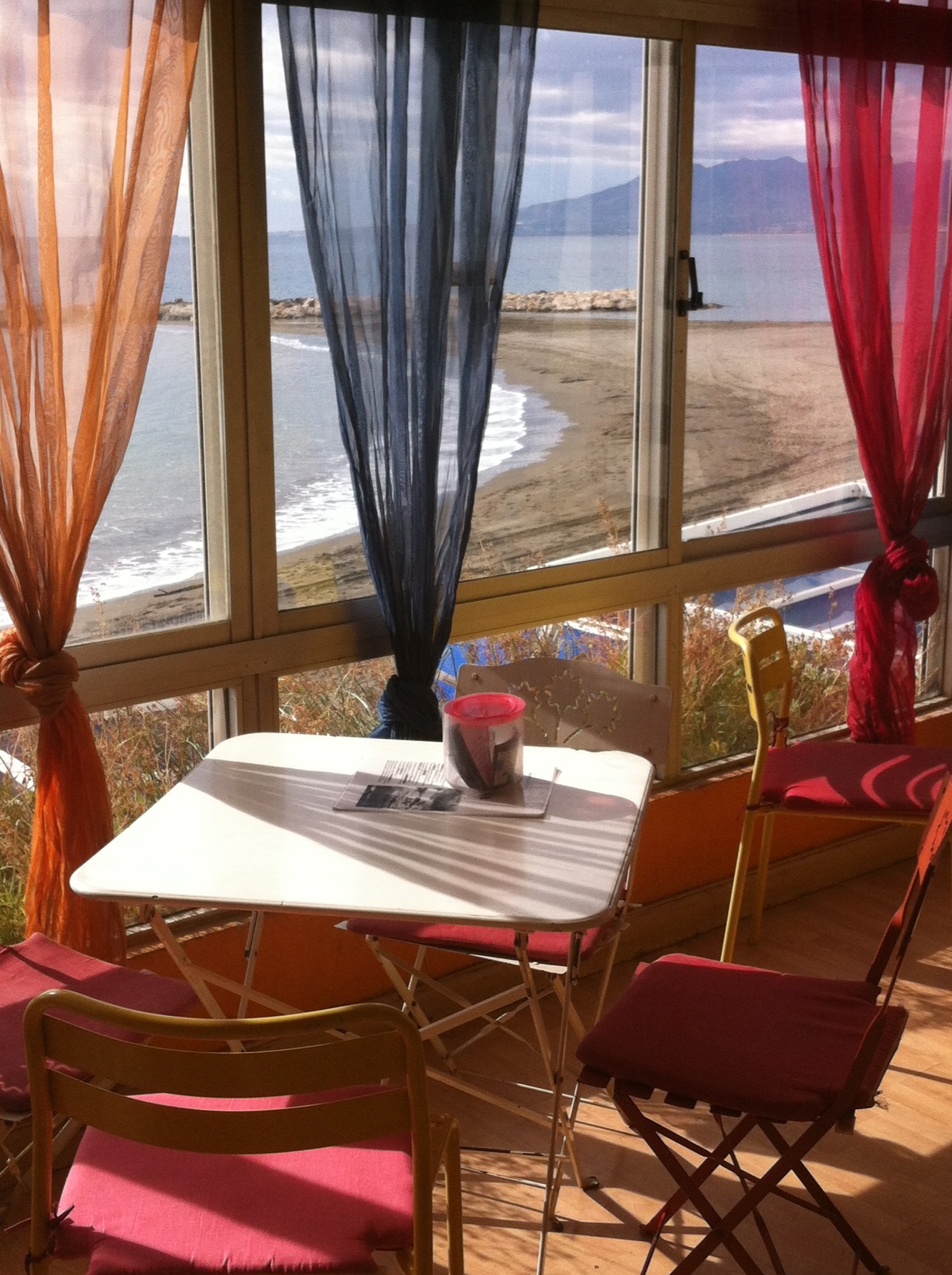 Afternoon coffee with friends moves from beachside cafes to warmer indoor settings. Afternoon coffee with friends moves from beachside cafes to warmer indoor settings.
Los domingos. Días de descanso. Sundays. Days of rest. Back home after the long walk. Heat up the Jacuzzi for later on. Put on the wall-heater in the snug room. A bit of Spanish homework. A bowl of a rather good paella from the shop in the village that sells home-cooked food (too good to be labelled a “takeaway”) in front of the telly – a mixture on Sundays of English telly then Spanish - “Salvados” is my favourite programme of the week, an often hard-hitting investigative programme addressing the issues that really affect people. Jordi Évole speaks clearly but fast, and his interviewees not always so clearly. I use it as a test for how my listening and comprehension are improving. Not enough, and I still miss too much of it but usually manage to enjoy both the content and the learning process.
Los domingos. Días de descanso. A different rhythm now. The days of doorstep chats till 2am are long gone. The street shuts down early now, we all retreat inside our own walls, trying to keep warm. Next door my neighbours are huddled round the brasero, that seemingly-dangerous fire under the table, their legs tucked under the thick cloth that extends to the floor on all sides. My own snug room is cosy from the electric heater. The electricity bill will be a shock but that’s to come. For now, keeping warm is all that matters.
Early nights now, on Sundays. Days of rest. The winter duvet and the electric blanket enclose me for the night. Summer will be back …. eventually.
© Tamara Essex 2013
THIS WEEK'S LANGUAGE POINT
I learned two lovely phrases recently.
“Estaba en una nube” – I was in a cloud, meaning I was in awe of somebody or something, or just floating in a general cloud of delight.
“Se me pasó el tiempo volando” – the time flew by.
Good phrases for me, as they pretty much define how things are going!
 0
Like
Published at 1:33 PM Comments (2)
0
Like
Published at 1:33 PM Comments (2)
81 - Letting Go
Thursday, November 14, 2013
Growing up seems to me to be a process of stretching the elastic then finally letting go of the metaphorical apron strings. The first time you go out alone on your bike, the first time you go out alone to the disco, the first time you drive your car without your instructor. I was 20 when I bought my first house (in Slough back in 1979) - my mum came on both my viewings, and approved the purchase before I did a thing. My next purchase was a studio flat in Battersea - I viewed it on my own and made a verbal offer, then Mum came to see it before I signed anything. The next move was to a bigger flat in Battersea and I showed it to her after I'd signed the contract. With the cottage in Shaftesbury, I had bought it, had the necessary renovations done, moved in and lived there a couple of months before she ever saw it. Growing up. Making your own decisions. Parental approval not so necessary any more.
The final move, she never saw. But she had wanted me to live in Spain and pushed me in that direction. She was relieved when I was able to report to her in hospital that I'd found the right place. She definitely approved.
Do we ever stop seeking that approval? Even with the moral support of our friends, do we as adults still seek parental approval? In Shaftesbury for a week last month I walked round - for the last time - to look at her bungalow. It was her birthday, she would have been 83. The new owners have converted the garage into a third bedroom and have changed the front door. It's not hers any more, in any sense. Another link is broken, the apron strings are almost out of reach.
She had been able to make her home in several countries, and had learned English as a second language, later adopting it as her primary one. Quite early on she had encouraged me to keep improving my Spanish, not letting me "just get by" but pushing me to learn it properly. Most of my real progress came after her death, yet she had been pleased with the foundations already in place. As I read another chapter of a Carlos Ruiz Zafón novel, I suspect she would have approved. But perhaps more importantly …. I approve.
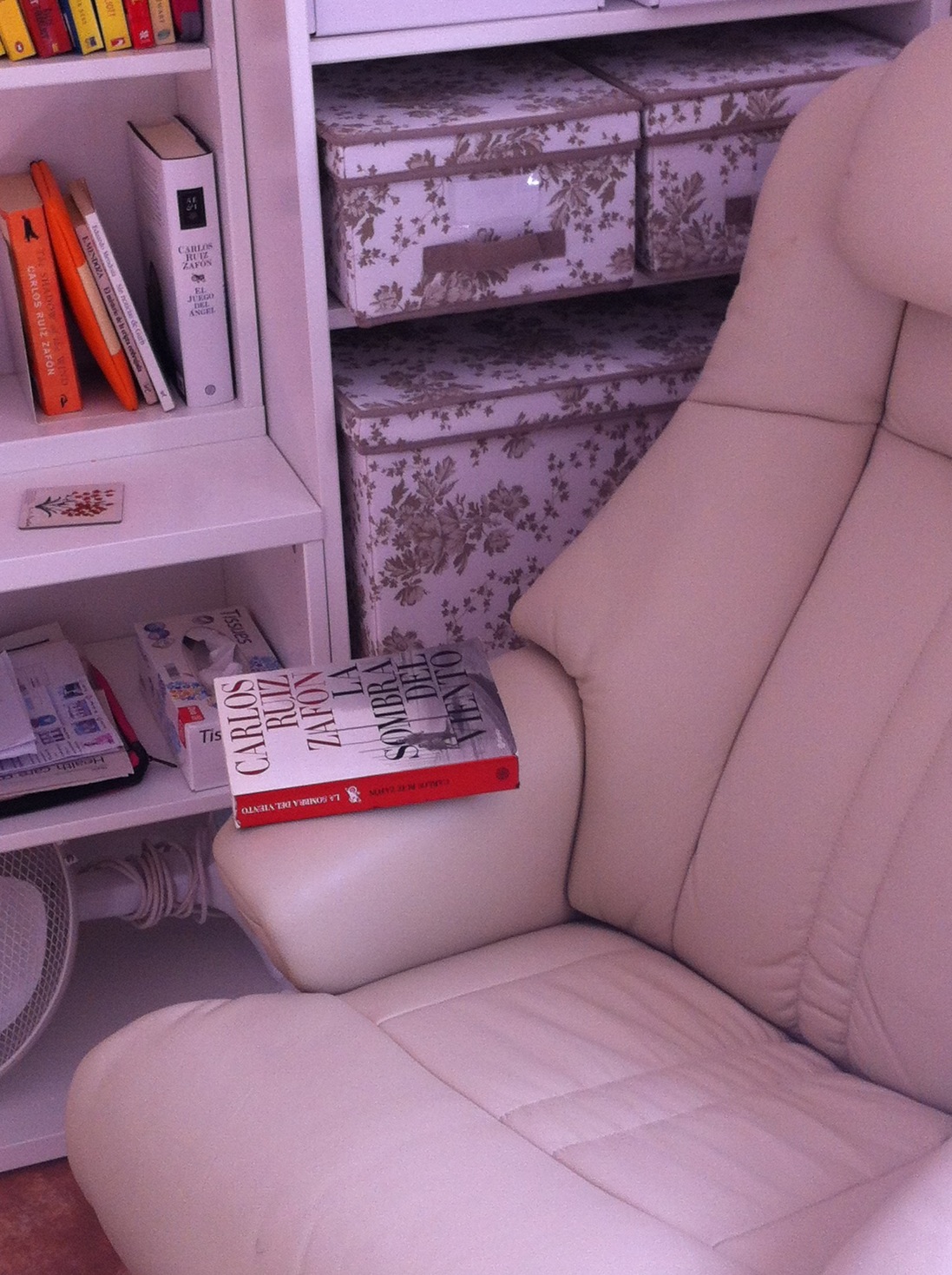 Back in Colmenar the downstairs bedroom has completed its conversion to become my den, my office, the cosy room which will be easy to keep warm this winter. It's pretty, it's full of my favourite books, and it wraps me up – safe, comfortable, comforting. I curl up in the big squishy leather chair and reach for the Zafón novel. I remember the day Mum bought the chair for her bungalow. "Will it fit?" she asked. "Will it look right?" "Yes Mum it'll be grand" I told her, noticing for the first time the shift, her need for my reassurance, my approval. The day she began to depend on me. Back in Colmenar the downstairs bedroom has completed its conversion to become my den, my office, the cosy room which will be easy to keep warm this winter. It's pretty, it's full of my favourite books, and it wraps me up – safe, comfortable, comforting. I curl up in the big squishy leather chair and reach for the Zafón novel. I remember the day Mum bought the chair for her bungalow. "Will it fit?" she asked. "Will it look right?" "Yes Mum it'll be grand" I told her, noticing for the first time the shift, her need for my reassurance, my approval. The day she began to depend on me.
In the 16 months since she died, the most difficult moments have always been in Shaftesbury the morning after arriving there from Spain. My first waking thought was always to go round, see mum, and tell her what had been going on. A moment later and straight-thinking would return - no, she wasn't there to report to, not there to laugh at my stories, nor to give the always-sought approval. Now that I've seen her bungalow with its new front door and its third bedroom, it's probably sunk in. The apron strings are well beyond reach now. I'll have to get that approval from somewhere else. Maybe it's finally time to seek it from within myself, at last? Perhaps that's what growing up really is.
© Tamara Essex 2013
THIS WEEK'S LANGUAGE POINT
I’m often accused of lowering the tone! But for once, it’s what I’m MEANT to do! My Spanish friends are trying to get me to lower my tone when I pronounce a T or a D in Spanish. And at the same time, I’m trying to get them to raise their tone when they pronounce the same letters in English.
Trying to get Spanish people to pronounce “He looks like he doesn’t want to be here” or “That cat sat on that mat” helped highlight for me, how MY Spanish pronunciation needs to change.
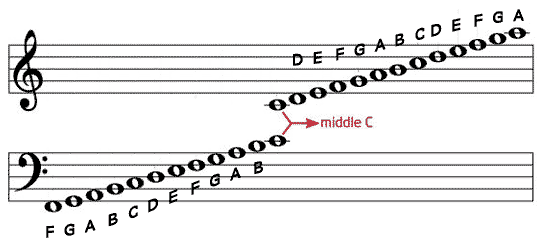 In English we pronounce the T in “The cat sat on the mat” as a very light, high note. In Spanish it is much lower. It’s as though the English T is played on a child’s glockenspiel - you know, the ones with the metal keys. A high, light, ringing sound. The Spanish T is played on a xylophone, a duller, wooden sound. The tongue is up against the teeth, almost through them. In English we pronounce the T in “The cat sat on the mat” as a very light, high note. In Spanish it is much lower. It’s as though the English T is played on a child’s glockenspiel - you know, the ones with the metal keys. A high, light, ringing sound. The Spanish T is played on a xylophone, a duller, wooden sound. The tongue is up against the teeth, almost through them.
The English D is only a bit lower than our T sound, but in Spanish we need to take it right down low so we hear it in our bellies. Maybe the English one is the top string on a cello, and the Spanish one is a double bass?
They make me repeat that long sentence with all the rolling rrrrrrs (about el perro de San Roque who doesn’t have a tail), but it’s the last bit I need to work on … “Se ha cortado”. Cortado is a GREAT word to practise. Even if you don’t like your coffee quite that dark! It’s got that rolled rrr in the middle, followed by a nice dull T with the tongue up against the teeth, and then a really low D. There is MUCH less difference between a T and a D in Spanish.
So I drove back from Torre del Mar one sunny November evening bellowing “Se ha corTaDo” … “Se ha corTaDo” … “Se ha corTaDo”. Go on – try it!
 0
Like
Published at 5:24 PM Comments (3)
0
Like
Published at 5:24 PM Comments (3)
80 - Spread-sheets and Strategies
Thursday, November 7, 2013
I'm up in the air again. My English car now has a spread-sheet of its own to manage its complex movements. This time, as I flew into Gatwick, the car was left in Sussex ready for me to pick up after a night at Jane's house. After my brief stay in Dorset I left it at Bristol airport where a friend will pick it up and use it during my absence, leaving it in turn in Bournemouth or wherever the spread-sheet dictates for the next time I need it. Car-sharing is the convenient and environmentally-sound solution for someone with A Foot in Two Campos.
Eight weeks at home in Colmenar and then a week back in Dorset to see friends and start getting from banks the details I will need for my gestor to complete my Spanish tax forms in January. The flights are no hassle. It's just like a bus, though very NON-environmentally-sound and I feel guilty enough to try to reduce the number of flights. The bag sits ready with the keys and papers necessary for the place to which I am travelling. Just add the iPad and I'm good to go.
In the Spanish class I go to, we discussed how we prepare for journeys. After chatting in pairs about holidays, we then had to describe the other person's characteristics, as evidenced by their travel preferences. My colleague described me as "adventurous" and "independent" (because I had just got back from a couple of days in the Alpujarra mountains), and I described her as "organised" and "well-prepared" (because she always packs a travel-iron, having checked on the internet whether one is provided).
We had to present "estratégias" to the class for improving our Spanish. Mine included spending a minimum of two hours per day in settings surrounded only by Spanish people, speaking only Spanish. This is a target I usually exceed, often three-fold, yet it met with scepticism and a degree of ridicule from most of the group. "I couldn't find another two hours a day" scoffed one member, "I'm busy enough as it is". Of course she is right. Nobody can find two more hours in a day, however hard we try. But this is to miss the point entirely. Speaking Spanish and spending 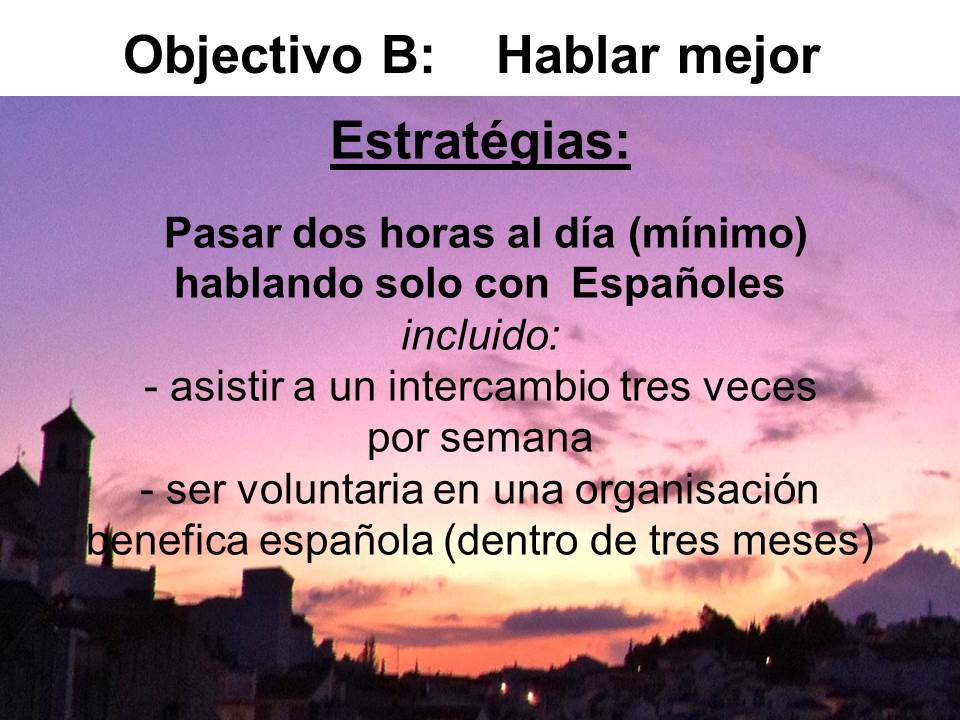 time with Spanish people is not some kind of extra "task" in the day - it needs to be the norm, every day, if I am to continue to expand my vocabulary and become more relaxed with the language month by month. It is about spending time in the street chatting with friends and neighbours. It's about attending intercambio groups. It's about tapas in a bar chatting to a stranger about something in the Spanish newspapers. It's about a long walk in the mountains speaking only Spanish. It's about two hours in the hairdresser's chair while she puts more stripes in my hair. It's about talking to villagers while waiting at the bus stop. Best of all, it's about a long relaxed coffee (or two) with a good friend discussing politics, life, cultural norms and differences, or just our plans for the weekend. Not "extra" time, just the day-to-day activities of village life, in Spanish, every day. Poco a poco. Paso a paso. time with Spanish people is not some kind of extra "task" in the day - it needs to be the norm, every day, if I am to continue to expand my vocabulary and become more relaxed with the language month by month. It is about spending time in the street chatting with friends and neighbours. It's about attending intercambio groups. It's about tapas in a bar chatting to a stranger about something in the Spanish newspapers. It's about a long walk in the mountains speaking only Spanish. It's about two hours in the hairdresser's chair while she puts more stripes in my hair. It's about talking to villagers while waiting at the bus stop. Best of all, it's about a long relaxed coffee (or two) with a good friend discussing politics, life, cultural norms and differences, or just our plans for the weekend. Not "extra" time, just the day-to-day activities of village life, in Spanish, every day. Poco a poco. Paso a paso.
In England the estratégia was harder to implement. Skyping two Spanish friends was a big help. Spotting a paella stall in Wiltshire market-place threw up a random and unexpected opportunity to engage Spanish food-producers in conversation (though the Valenciana was a struggle). But it was only a week away, and the focus was on spending time with good friends. I admit to being extremely motivated about learning and improving Spanish (the word obsessive has been mentioned!), but some things in life are more important than the estratégia. Not many, but friends definitely come first. Hasta pronto, amigos.
© Tamara Essex 2013
THIS WEEK'S LANGUAGE POINT
If you're helping a Spanish-speaker with their English in return for their help with your Spanish, you're probably hitting the same pronunciation problems I am with Jose and Paco. Top problem was their pronunciation of the letter Y at the start of yellow, young and youth. Get them to say the Spanish word for ice - hielo - and although it doesn't begin with a Y, the sound at the start is the same sound they need to begin yellow, young and youth with. Get them to say "hielo hielo y- y- y- y- young youth yellow", which should shift them from starting those words with a J sound.
 1
Like
Published at 2:54 PM Comments (3)
1
Like
Published at 2:54 PM Comments (3)
Spam post or Abuse? Please let us know
|
|